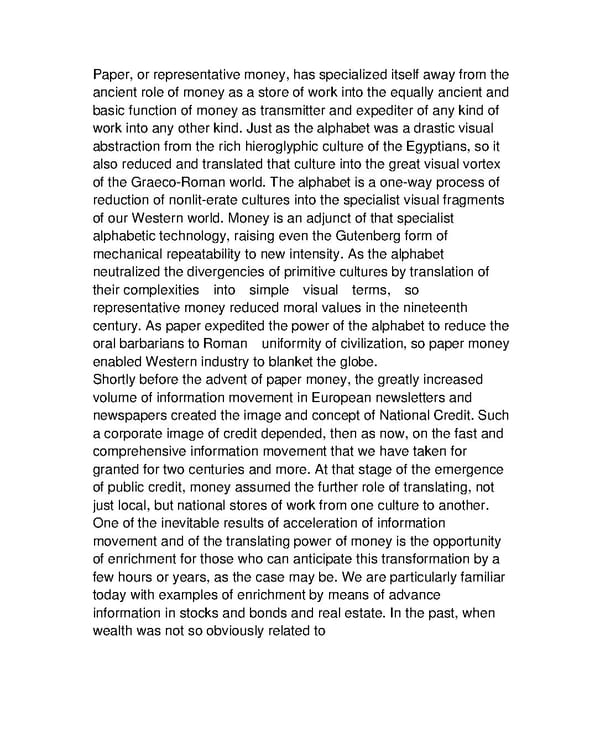Paper, or representative money, has specialized itself away from the ancient role of money as a store of work into the equally ancient and basic function of money as transmitter and expediter of any kind of work into any other kind. Just as the alphabet was a drastic visual abstraction from the rich hieroglyphic culture of the Egyptians, so it also reduced and translated that culture into the great visual vortex of the Graeco-Roman world. The alphabet is a one-way process of reduction of nonlit-erate cultures into the specialist visual fragments of our Western world. Money is an adjunct of that specialist alphabetic technology, raising even the Gutenberg form of mechanical repeatability to new intensity. As the alphabet neutralized the divergencies of primitive cultures by translation of their complexities into simple visual terms, so representative money reduced moral values in the nineteenth century. As paper expedited the power of the alphabet to reduce the oral barbarians to Roman uniformity of civilization, so paper money enabled Western industry to blanket the globe. Shortly before the advent of paper money, the greatly increased volume of information movement in European newsletters and newspapers created the image and concept of National Credit. Such a corporate image of credit depended, then as now, on the fast and comprehensive information movement that we have taken for granted for two centuries and more. At that stage of the emergence of public credit, money assumed the further role of translating, not just local, but national stores of work from one culture to another. One of the inevitable results of acceleration of information movement and of the translating power of money is the opportunity of enrichment for those who can anticipate this transformation by a few hours or years, as the case may be. We are particularly familiar today with examples of enrichment by means of advance information in stocks and bonds and real estate. In the past, when wealth was not so obviously related to
 Understanding Media by Marshall McLuhan Page 157 Page 159
Understanding Media by Marshall McLuhan Page 157 Page 159